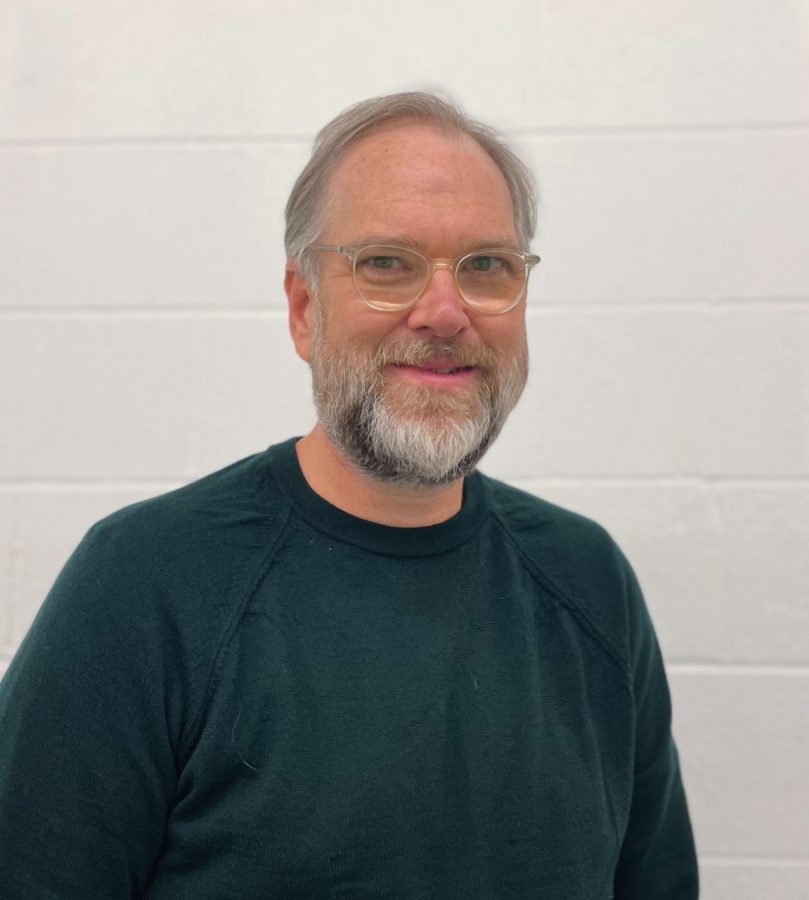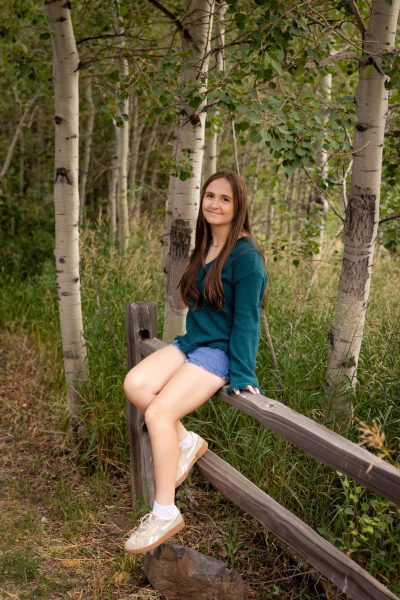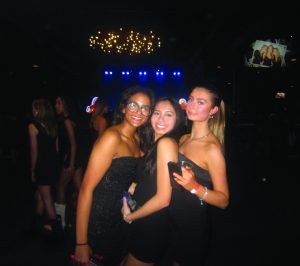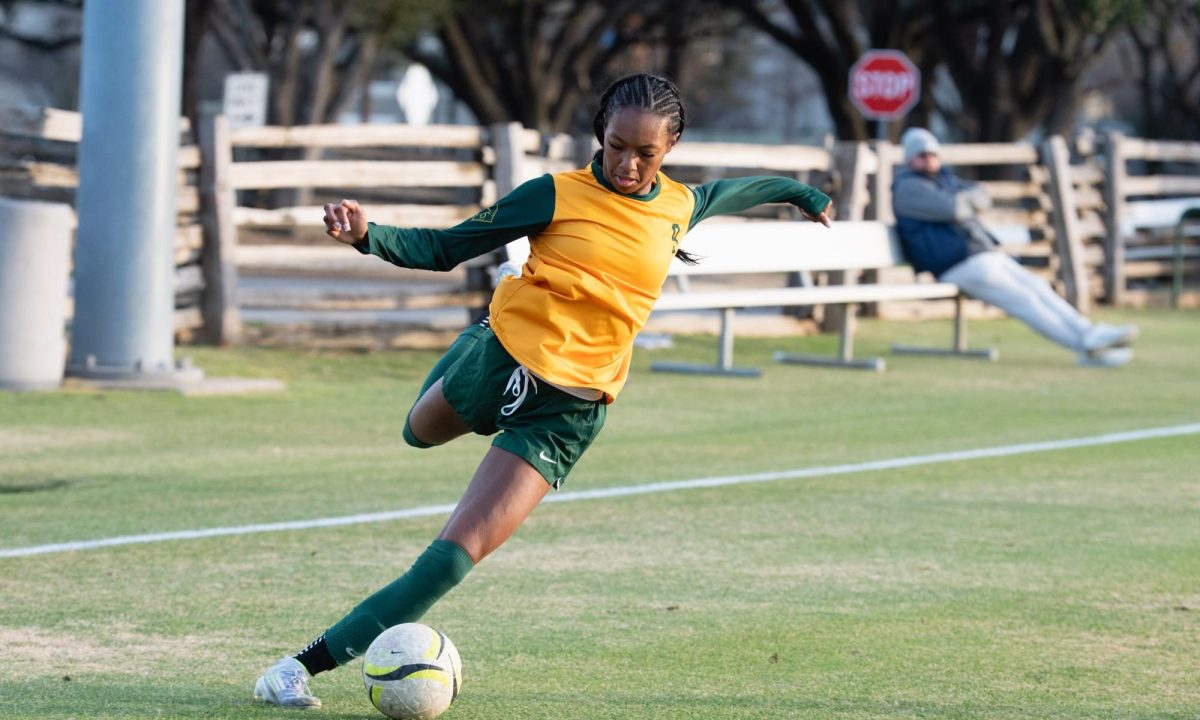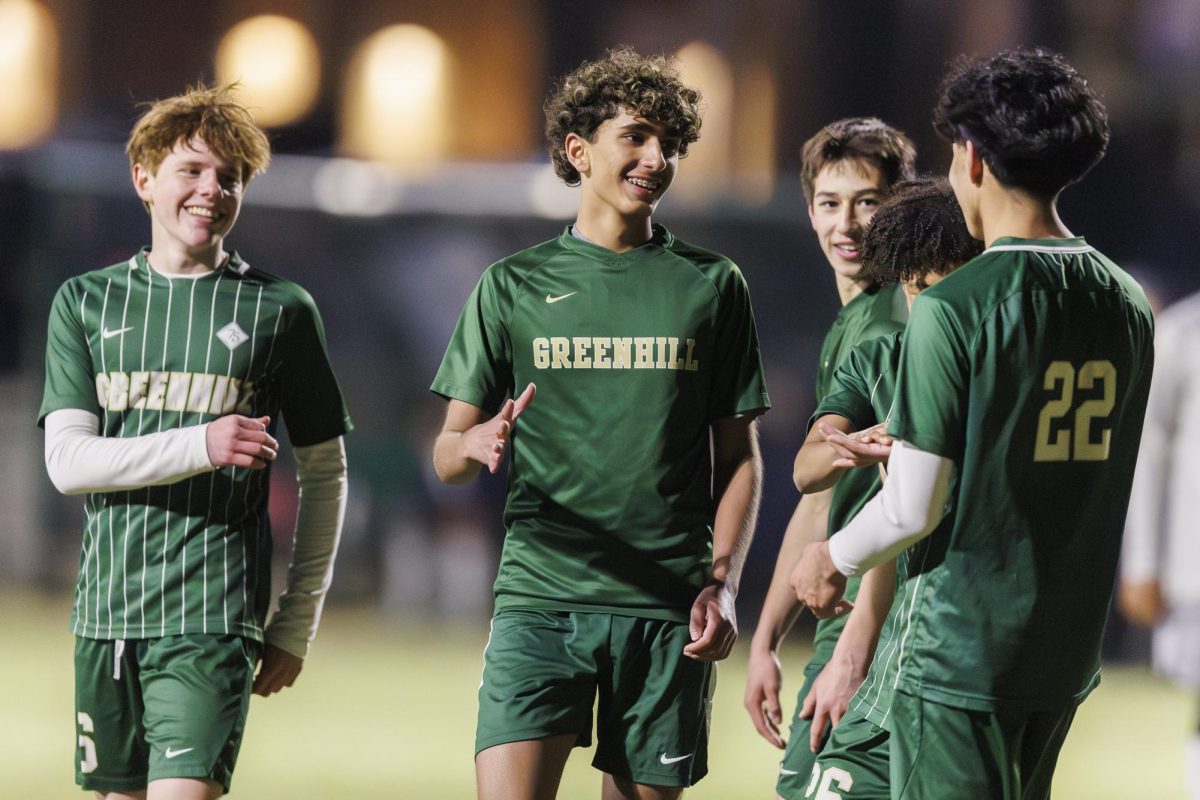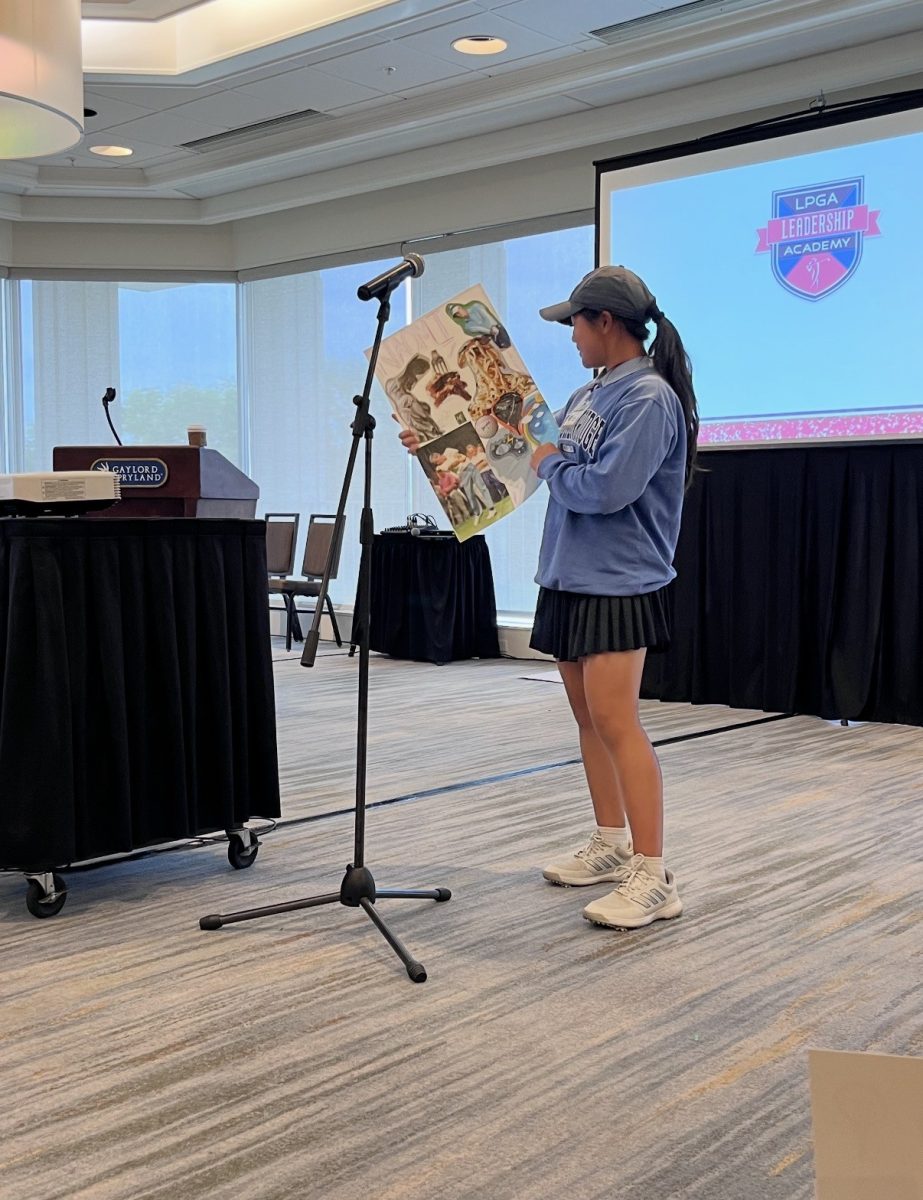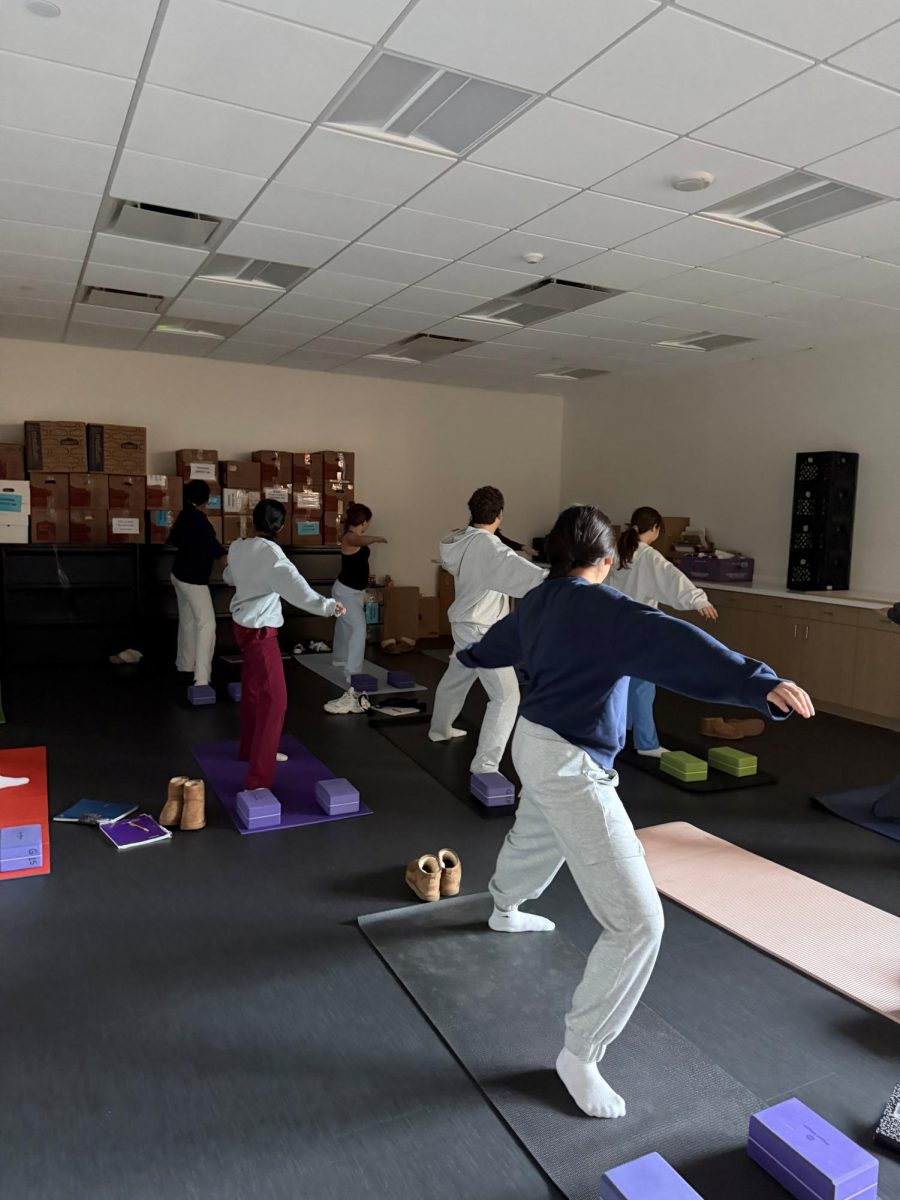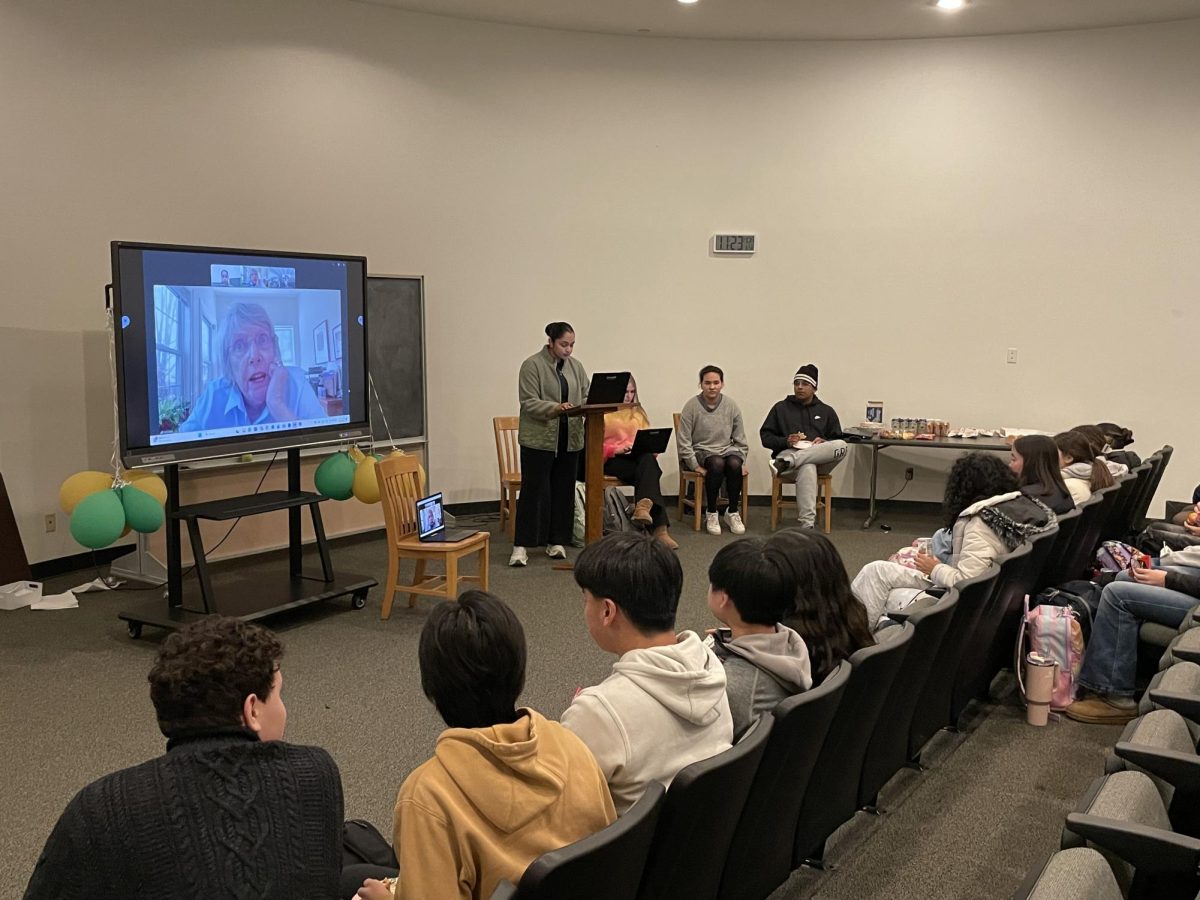Video Production Program Changes Structure
February 21, 2023
Greenhill’s Video Production Program Faced Changes Due to its Popularity
When Upper School Fine Arts Chair and Video Production instructor, Corbin Doyle came to Greenhill 25 years ago, he was not hired for his teaching. He was hired for his professional work and experience in the art world and film industry.
“It wasn’t like, ‘we saw this great teacher at St. Mark’s, we’re going to hire him,’” said Doyle. “They didn’t know me from that. They knew me because I won the Dallas Museum of Art Award.”
Doyle’s expertise has ignited a passion for filmmaking in numerous students and a yearning to have him as a teacher in others.
“Greenhill’s video production program is wildly successful and extremely sophisticated for a high school,” said freshman Sarah Koshy. “The fact that we only have one teacher running this and being the man behind all of us is kind of insane to me.”
The high demand for the course among Middle and Upper School students has also led to a significant increase in Doyle’s workload, insofar that he has had minimal time to produce films of his own.
He says it has been 20 years since doing so, and he has longed for time to work on his own professional films.
“Now I’m getting old and I’m saying, ‘I am not going to be on this earth forever’. I have basically not made anything in a long time,” said Doyle.
As a solution, there has been a reduction of class sizes and limitation to how many times a student is able to take Video Production course. This started at the beginning of the 2022-2023 school year.
Class Size Reduction
Video Production is one of Greenhill’s most popular fine arts electives in both Middle and Upper School, so the changes have been significant. The Middle School and Upper School Video Production classes have gone from 25 to 20 students and in Advanced Video Production in Upper School has gone from upwards of 30 to 20.
Head of School, Lee Hark, during the 2021-2022 school year, decided that he was going to decrease the size of the Video Production classes.
“I got defensive initially,” said Doyle. “Then he’s like, ‘No, this is for you.’ And I’m like, ‘Yeah, you’re right.’”
Head of Upper School Trevor Worcester says it was imperative that this happens to protect the health and wellbeing of Doyle.
“It was sort of a [situation where we told Doyle] ‘We recognize the work you put in, and it is unsustainable,’” said Worcester. “You can’t, as a one-person entity, continue to have class sizes that are so much bigger than a typical class size.”
According to Head of Fine Arts, Terry Martin, another factor contributing to the reduction of class size was the need for students to get enough one-on-one attention.
“That really came from school leadership in terms of us maintaining a certain size of classroom, which we feel is important for our students to get all the attention, the right kind of attention, they need to get from a single teacher,” he said.
Doyle says that due to 28 seniors graduating in 2022, it was probably the best time for this change to occur.
Furthermore, making Advanced Video Production (AVP) a smaller class has been something previous students have asked for.
According to Koshy, many upperclassmen have said AVP felt more like a family years ago while it was less popular.
This “family” is hand picked by Doyle, and is now becoming more selective and competitive. Worcester also believes this is for the better.
“I think there may have been a bit of a complacency with students because of the ability to just [say] ‘He’ll take me I’ll get in,’’’ said Worcester. “And there became a little bit of feeling where you had a really good, core group of students in AVP and some that were really maybe not pulling their weight with it. I think that can cause some friction within that family.”
Limits on Course Retakes
Another change implemented was limitations on the amount of times one student can take a video production class.
Starting the 2022-2023 school year, Upper School students are limited to taking Video Production two times in their Upper School career during the semester classes, but they can take the Summer Video Production class all four years.
According to Doyle, Worcester and Martin, this change is intended to give students eager to take the class a chance to do so, especially considering the decreased class sizes.
Doyle also wants students to explore other electives Greenhill has to offer rather than taking the spaces of people longing to advance as film makers.
“This weird thing happened where ninth grade, almost no one got into VP during the school year and it’s because all these people that don’t want to be in AVP, but they want to be in the film room making films, have taken VP three [to] four years in a row,” said Doyle.
Doyle wants to make sure that underclassmen are able to progress in his program rather than being prevented from getting into the class.
Scheduling with Summer Video Production
Every summer, a Video Production camp for Upper School credit is held for two weeks, intended to supplement filmmaking knowledge and experience.
After receiving official schedules for the 2022-2023 school year in August, many underclassmen who participated in the summer program noticed that Video Production was not on their schedules despite having it on the schedules they received in Spring 2022.
On August 12, 2022, Doyle sent an email to those students saying that because of the decreased class sizes coupled with the high demand for the course, they were not allowed to take the class due to their recent summer experience.
“Without my knowledge, due to increasing numbers in the [upper school] in general, teamed with lower class sizes in my classes and the continued high number of requests for Video Production, the class schedulers took students who were in the 2022 summer class out of the semester classes they were in for this year to allow students who had taken no VP classes a chance,” Doyle said in the email.
Doyle unprecedentedly gave students that did not take Video Production during the school year, due to this circumstance, an opportunity to apply to Advanced Video Production. He has promised this occurrence will not happen again.
For students taking advantage of the opportunity, there is a fear that they will lack the knowledge and understanding they need to succeed as an artist.
“I’m afraid that I won’t be as experienced as the other kids who did take Video Production this year,” said freshmen Albertina Pascual-Cisneros.
This circumstance has also deterred some from pursuing film and Advanced Video Production.
“The fact that I’ve been kicked out of a class meant that I had less of an incentive to apply,” said Koshy. “So, I’m not doing AVP in Upper School, largely because of this really unfortunate situation.”

